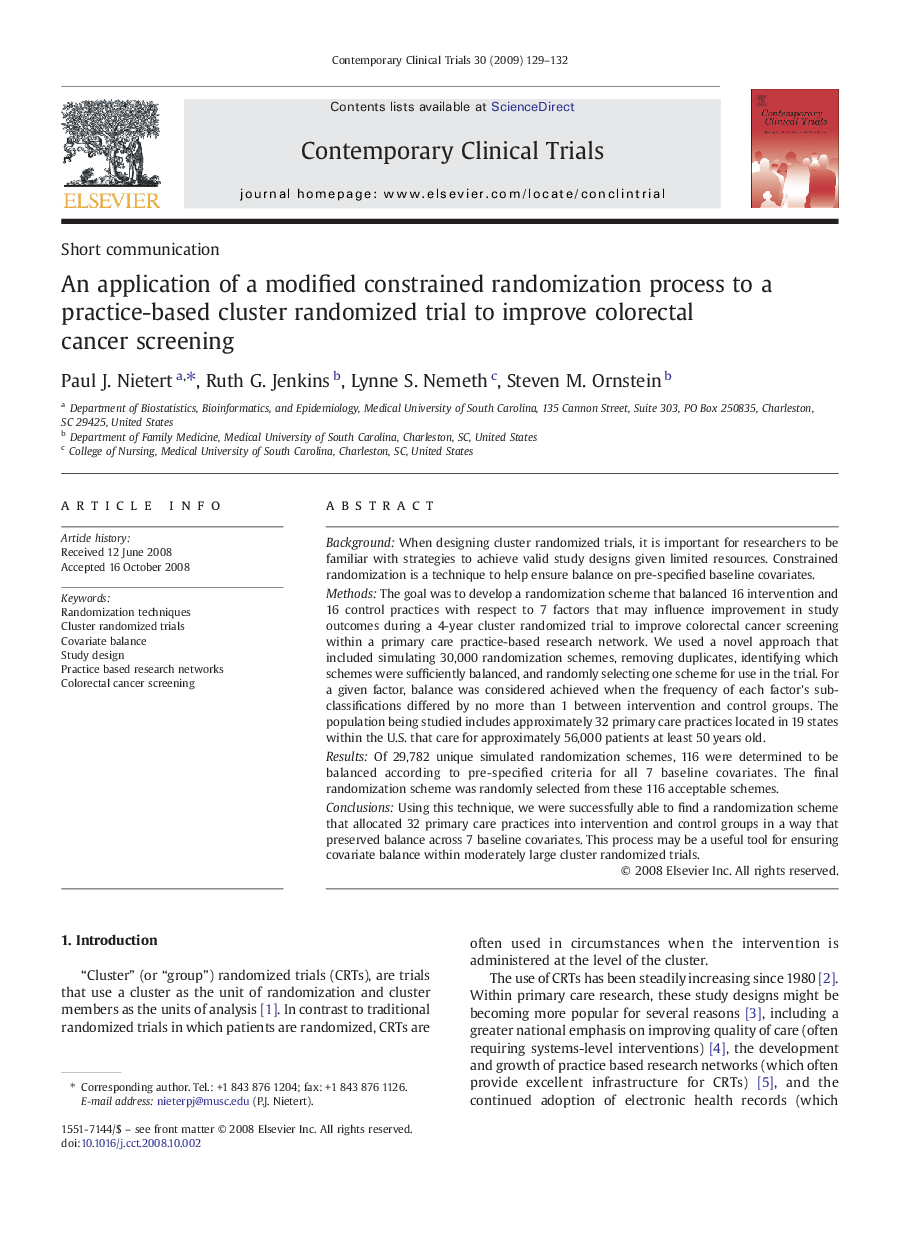| Article ID | Journal | Published Year | Pages | File Type |
|---|---|---|---|---|
| 3463222 | Contemporary Clinical Trials | 2009 | 4 Pages |
BackgroundWhen designing cluster randomized trials, it is important for researchers to be familiar with strategies to achieve valid study designs given limited resources. Constrained randomization is a technique to help ensure balance on pre-specified baseline covariates.MethodsThe goal was to develop a randomization scheme that balanced 16 intervention and 16 control practices with respect to 7 factors that may influence improvement in study outcomes during a 4-year cluster randomized trial to improve colorectal cancer screening within a primary care practice-based research network. We used a novel approach that included simulating 30,000 randomization schemes, removing duplicates, identifying which schemes were sufficiently balanced, and randomly selecting one scheme for use in the trial. For a given factor, balance was considered achieved when the frequency of each factor's sub-classifications differed by no more than 1 between intervention and control groups. The population being studied includes approximately 32 primary care practices located in 19 states within the U.S. that care for approximately 56,000 patients at least 50 years old.ResultsOf 29,782 unique simulated randomization schemes, 116 were determined to be balanced according to pre-specified criteria for all 7 baseline covariates. The final randomization scheme was randomly selected from these 116 acceptable schemes.ConclusionsUsing this technique, we were successfully able to find a randomization scheme that allocated 32 primary care practices into intervention and control groups in a way that preserved balance across 7 baseline covariates. This process may be a useful tool for ensuring covariate balance within moderately large cluster randomized trials.
